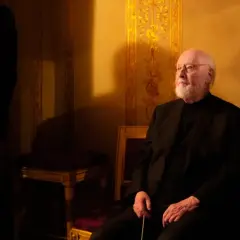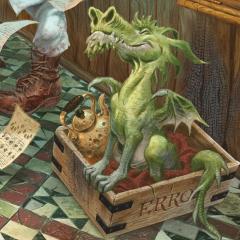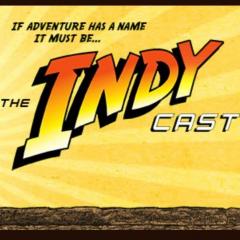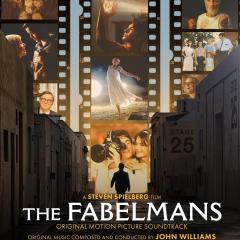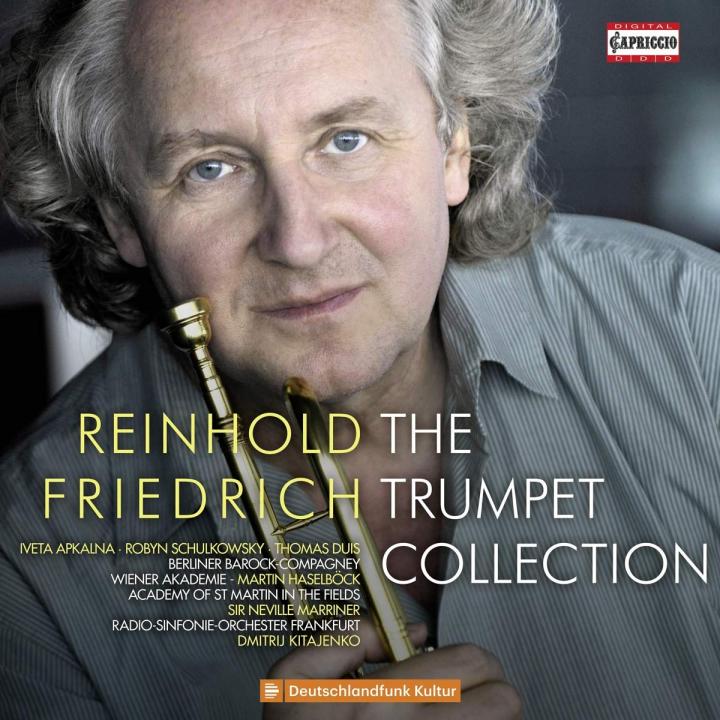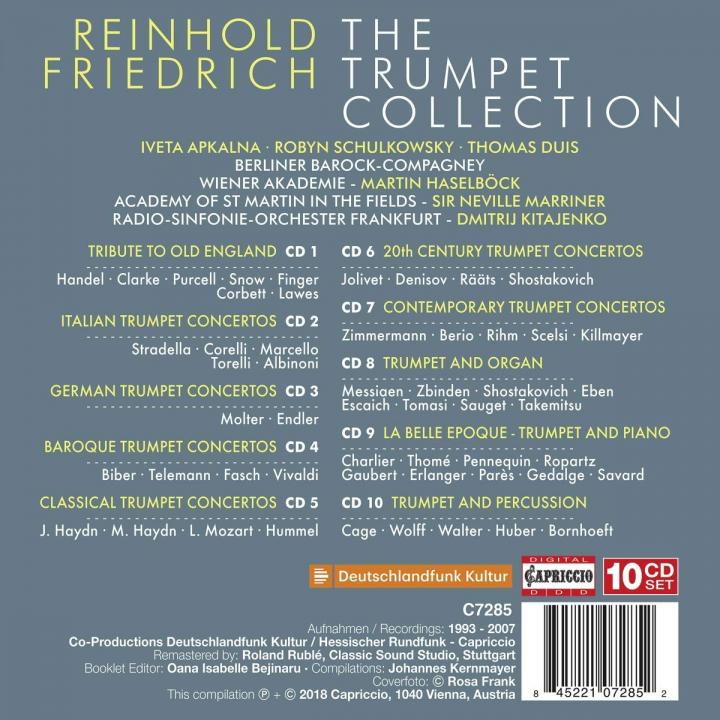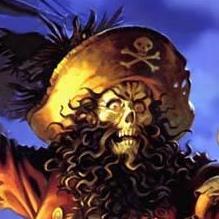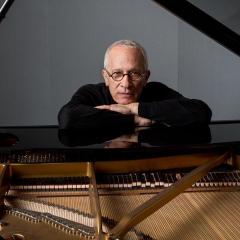Leaderboard
Popular Content
Showing content with the highest reputation on 25/07/21 in all areas
-
Guys, John Williams looked great. I swear he's in the better shape now any time I've seen him. What a legend12 points
-
A lovely work! The cantilena that also closes the piece sounds almost like a contorted version of "Moonlight" (from Sabrina). Makes me wonder if it could have been intentional? As much as I love his first violin concerto, this is (obviously) the more mature work of the two. Bravo, Maestro.7 points
-
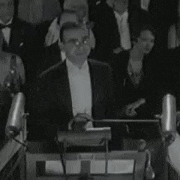
JW is writing a new violin concerto for Anne-Sophie Mutter - "Violin Concerto No. 2"
Martinland and 5 others reacted to Fabulin for a topic
"We are going to play Across the Stars; a theme from one of the Star Wars films, and I have not a vaguest memory which one it was from".6 points -
JW is writing a new violin concerto for Anne-Sophie Mutter - "Violin Concerto No. 2"
Falstaft and 4 others reacted to Joni Wiljami for a topic
I just listened to this DG stream, I'm just loving it. Moonlight reference was weird and wonderful at the same time. Epilogue made me cry!! Love you JW.5 points -
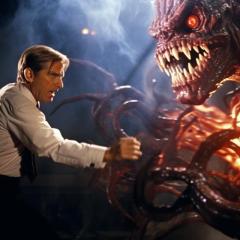
JW is writing a new violin concerto for Anne-Sophie Mutter - "Violin Concerto No. 2"
Cerebral Cortex and 4 others reacted to karelm for a topic
It's crazy to think that at 89, he is creating new works as rich and demanding as this. I found it to be a virtuosic work worthy of the soloist and her formidable talents. One of my favorite aspects of John Williams is his sense of long form. I loved this from the earliest film scores how they develop their themes over time but in concert music, it is especially apparent. He has an innate sense of drama. How to tell a story or how to reveal ideas over time. This is gorgeous music. Something he clearly put much care in to and I look forward to revisiting and studying. JW is a melodic genius but his harmonic and structural brilliance are just as substantial. This concerto is a wonderful companion to his Violin Concerto No. 1 which I felt had a bold climactic flourish, but here we have an equally substantial work that is more nocturnal. That doesn’t mean comforted, there is an inner turmoil but it is more reflective and introspective. It’s a deep and meditative work. I loved it and look forward to revisiting it. My favorite movements were the darker, longer outer movements but I also enjoyed the inner movements with their whirlwind effects. The ending felt like a beautiful lament. It's hard not to think there is some other, deeper meaning to music.5 points -

JW is writing a new violin concerto for Anne-Sophie Mutter - "Violin Concerto No. 2"
WilliamsStarShip2282 and 4 others reacted to Fabulin for a topic
The second movement is a love at first sound It's basically what I am looking for in contemporary classical.5 points -
I listened again last night, and I found that I was already enjoying the first movement more and loving the rest. In fact, I found it easier to focus on the music without actually watching it being performed. I guess I could put all my attention into the notes and not split that with observing Anne-Sophie's amazing playing and tracking every movement of JW to ensure he is ok. (As written on another thread, he looks great.) VCNo2 is on the playlist for this morning's run too! Looking forward to it. And great write ups as well! Very enjoyable to read other people's thoughts. I've been spending a lot of time with Stravinsky's music as of late. (The 50th anniversary of his passing has caused labels to put out much of his work again.) The above point is very apt in another way as it relates to good old Igor and maybe even to Arnold. The radio announcer alluded to this point as well but in the context of the lucrative nature of the Firebird. Stravinsky is widely known and played for just a few of his works - Firebird, The Rite of Spring, Petrushka. All of those are from the earliest phases of his work. He composed another 50 years after those were released. Other pieces such as The Solder's Tale Suite, The Violin Concerto, Dumbarton Oaks and a few others do get played too, but much less frequently. Bernstein recorded a number of them. Schoenberg is really only remembered for 12 tone writing and not even so much for specific pieces (Verklärte Nacht and Pierrot Lunaire are examples that are played - and those are really pre the twelve-tone method). Williams too is known, widely, for a handful of pieces. That group is larger than IS and AS given the films he has scored and their mass popularity and the subsequent concert arrangements. However, when an orchestra does a Williams program, they do 10 pieces, most of which are the same from concert to concert. Of course, we've been fortunate to get gems from Lockhart that are outside the standard range but that is unusual. Stravinsky was always annoyed by the fact that he was known and played for just those few early works. I wonder if Williams thinks about this at all. I sense he does not, but I still wonder. He truly has a range that is in rarified air. I find it a real miss that orchestra do not program one of his concertos during their "film" concerts. They could have their own principal section leaders or bring in a guest. Of course, as we heard in Violin Concerto No. 2, some of his concert works are just not going to be doable by more than a handful of the best violin concertmasters or equivalent players for viola, trumpet etc. (I think the Trumpet Concerto could be played more. Maybe the Oboe one too.) Many people have written that film music (and live to picture concerts particularly) brings new audiences into the concert hall - particularly younger people. However, then they do not hear anything that broadens their minds to the rest of orchestral music. In some ways, I like that the first movement of this new concerto starts a bit tough because it is so interesting but there are tons of what makes Williams amazing to also find along the way. Truly a great combination of his talents. We all owe Ms. Mutter a huge thanks for her inspirational personality. Anyway, random thoughts after a wonderful concert.4 points
-
Although I haven't visited the forum in a little while, I have very much been anticipating the premiere of this piece. While it has always been a dream of mine to see Williams conduct live and in-person, listening along on WCRB tonight was still a very special experience of its own. I find that the most meaningful encounters I've had with Williams' music are the ones that are beyond my ability to articulate in words. While these pieces never fail to exude the greatest sense of wonder, inspiration, and passion, I am ultimately left speechless. For the better part of my life I have continuously developed a deep and intimate connection to the maestro's music, but as anyone who regularly immerses themselves in a great artist's work will know, it is easy to become numb to greatness when one is so intensely familiar with it. There has never been any doubt in my mind about my love for John Williams and his music, but I feel it is required to occasionally step back and regain the feeling of discovery that started the journey so many years ago in order to truly grasp it all. This can often be achieved by approaching something old as if for the first time, or by hearing an entirely new piece, one with the opportunity to confidently reaffirm the admiration, appreciation, and immense gratitude that has always been there. For me, hearing the violin concerto tonight has done precisely that. On first listen, the premiere piece ranges from quiet and subtle displays of emotion to vibrant but grounded flashes of the abstract. While I am not particularly familiar with much of Williams' concert repertoire, there are so many touches here that are instantly recognizable as the work of the maestro. Structure is not always of the greatest prevalence, but the more free-flowing nature of the piece allows for a number of particularly ear-catching passages to flower. The slow movement is undoubtedly the highlight, with some of the more yearning angular violin passages, in tandem with the great crescendos and brass swells that emerge thereafter, bearing some strong similarities to A.I. (at least to my ears). It goes without saying that Mutter has an astounding command over the violin, and her talents could not be more perfect in this central role. The energy in the performance is palpable, even on the radio broadcast; a consistently powerful piece played to the fullest extent. Harp and flute play significant secondary roles, with pockets of brass and timpani further establishing the atmosphere. There's a lot to explore and unpack from the very beginning, and while there are stretches that may take some warming up to, it becomes easy to share in Williams' description of "healing and renewal" as the conclusion provides a reflective final touch to what I'm sure will prove to be a very rewarding piece in the coming years. I will never really be able to explain the deeply spiritual effect that Williams' music inherently possesses, nor will I ever be able to comment on how that has then translated into my own life. However, I think I ultimately want to express my admiration for him as not only a composer and an artist, but as an active source of life and joy for me and so many others. On that note, I would also like to further thank the JW Fan community for sharing in this very exciting moment! It means a lot. Cheers!4 points
-
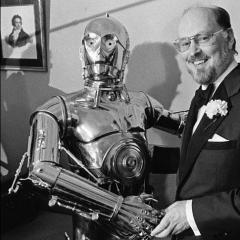
JW is writing a new violin concerto for Anne-Sophie Mutter - "Violin Concerto No. 2"
crlbrg and 3 others reacted to David Story for a topic
I loved the entire concert - brilliant performances from beginning to finale! First time I heard Montgomery, she's good. Fun, accessible, modern. I enjoyed the Concerto No. 2 on first listen. I agree the 2nd movement is a highlight, I also thought the orchestral effects and interplay in the 4th movement are a whole world to explore. It took a while for me to warm to the Concerto No.1, while this is one of William's strongest concerti, again on first listen. The Across The Stars encore is a new arrangement, a touch more dramatic. Quiet City is a much beloved work and this performance brought out the gentle grandeur. Firebird is genius from bar 1 and tonight's performance was exceptionally clear and evocative. A showpiece for a great orchestra. John Williams has worked with many of the greatest violinists of the past 6 decades. I hear more passion and virtuosity from Mutter today She's evolved into one of his historically important interpreters - and muses! Looking forward to seeing this live. A memorable premier.4 points -
The piece really does require a virtuoso performer. I am unsophisticated enough to always want a clear theme to hook me (hence my love of JW film music in general), but I was happy with the concerto nonetheless. I assumed this would be his approach, as it just seems to be his authentic concert voice. Really cool orchestrations throughout. A couple of callbacks to the first violin concerto (at least to my years), but it has its own identity. My guess is that once the dust is settled, I will like 2 more than 1 (and Treesong), but I will listen several more times before that point.4 points
-
Definitely. Loved the concerto! Need to listen to it a few more times, but loved the typical Williams touches along with the newer stuff. Sublime playing by ASM - she always performs at the highest level to the point where it's easy to take it for granted. Amazing stuff!4 points
-
Well, I really liked Rounds! Not such a huge fan of Prologue, though. I'm reserving judgment on the other two movements until I hear them more. EDIT: They're doing "Across the Stars" as an encore! Williams gets some laughs saying he hasn't "the vaguest memory which" Star Wars film it's from -- "one of the nine," he says.4 points
-
The Official La-La Land Records Thread
Smaug The Iron and 2 others reacted to Bounty95 for a topic
MV on FSM: https://filmscoremonthly.com/board/posts.cfm?threadID=144674&forumID=1&archive=0 New spectacular releases by Williams and Horner (and even more Goldsmith)3 points -
There is no off switch with you, is there? Not that I am complaining...3 points
-
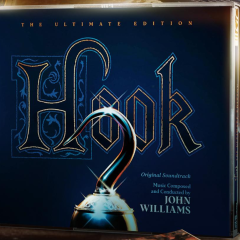
What Is The Last Score You Listened To? (older scores)
Tom Guernsey and 2 others reacted to Jay for a topic
John Williams - Far and Away (LLL main program) Listened to this while driving to Tanglewood last night to see Williams live. I hadn't listened in a long time, and sort of forgot about it. This listen reminded me that this score is very good, and is one that I should listen to more often!3 points -
I had a great evening in western Massachusetts last night. We've had quite a mosquito problem around here lately after 3 straight weeks of rain, so I was worried that could put a damper on things, but it turned out to not be an issue at all - didn't even notice any bugs of any kind the entire concert. I was really worried when Anne Sophie Mutter mentioned the mosquito problem on social media, and brought bug spray, but didn't even need it. Since the pandemic lockdowns, we've got to so very few public events, so it was quite wonderful to be out in a big open space full of people to enjoy the arts and not feel weird about it; Earlier in the summer we attended a baseball game and never quite settled into feeling like everything was normal, but this time it was much easier to do so. It helped that the weather was so great and there was very few unvaccinated people there (or at least, very few people wearing masks). I only arrived in time to briefly chat with @Doug Adams and his lovely wife before the show, but that also made things feel normal again, to be talking to out-of-state visitors on vacation, and dragging my small talk and social interaction muscle memory back out from the depths! When it comes to orchestral music concerts, I have only really attended Film Night type concerts (and Live To Projection movie concerts) so am more used the conductors taking to the mic and telling stories in between pieces. As this was the first entirely classic music concert I've ever attended, I was a bit surprised that that didn't happen; Shortly after 8:00 the orchestra tuned and settled down, the lights went off, and after a bit of a wait Andris Nelsons finally came out and jumped right into the first piece - Starburst, for string orchestra (2012) by Jessie Montgomery. This was a fun little piece that was surprisingly short! After that was over, he left the stage without saying anything, and then there was a lot of re-shuffling on stage to move various people to different spots, including bringing out the harp to the forefront. After another bit of a wait, Anne Sophie Mutter and John WIlliams came out together to a tremendous applause, and he began the next piece right away - Violin Concerto No. 2 (2021) by John Williams This was an incredibly long work - is it the longest of his concertos now? - full of so many different ideas, I can't possibly even begin to attempt to describe it. At times its felt like a duo for violin and harp, and had many other interesting solo passages for other instruments too. I'll have to re-listen to this a few times before forming a solid opinion. After it was over, the audience erupted into a long applause until Anne Sophie and John Williams walked off the stage... and then I was surprised to see them come back out, like what would happen for an encore... which turned out to kind of be what happened, an encore in the middle of a concert instead of at the end - never seen anything like that before! His introduction to the encore was hilarious: "Here is Anne Sophie playing Across the Stars, which is a theme from one of the Star Wars films - I haven't the vaguest memory of which one. One of the nine" Across The Stars (2002 - Revised 2021 arrangement) by John Williams was probably the highlight of the concert for me; The theme itself has always been a really good one, and the fact that he's returned to re-arrange it so many times is pretty interesting. While this wasn't near one of my favorite tracks on the Mutter album, I am curious now to compare this revision to that version to see what he changed. When this piece was over, the audience erupted into an even bigger and longer applause, that continued strong as they left the stage, and then came back again to even more applause - I was half-expecting another encore! - but they eventually left again, and the stage was again re-configured. Andris Nelsons then returned to conduct two more pieces - Quiet City, for trumpet, English horn, and strings (1941) by Aaron Copland & Suite from The Firebird (1919 version) by Igor Stravinsky - without saying a word. I was unfamiliar with these pieces, but recognized that Williams must have been inspired by The FIrebird for his Tinkerbell music in Hook. After a long round of applause with just Nelsons on stage, Mutter and Williams came out as well, and Mutter had her violin, so I was expecting another encore, though I guess it was just for show. The standing ovation continued for a very long time, perhaps longer than any concert I can remember, until eventually all left the stage, and the lights came on, and the concert was over! I am used to Film Night concerts being closer to 3 hours long, so I was surprised this one was around 90 minutes. I don't know if this is standard for a night of classical music, or if Tanglewood is cutting concert lengths in half and not having intermissions because of covid, but the decision was fine for me. I had a great time.3 points
-
Listening to this more, I still think the most satisfying original music JW has written for ASM is Markings. I love that piece so much. It has a mysterious, at times tense mood, great color, and feels compact enough to enjoy without losing focus.3 points
-
This is not exactly what you're asking as it contains everything but I recently made a complete edit using OST, FYC and the Isolated Score that I uploaded on YouTube: When possible, the loops, edits, trackings from the film and the microedits from the OST have been removed. This improves a lot the listening experience in my opinion, you should give it a listen3 points
-
His voice sounded rejuvenated too.3 points
-
Williams would make a great JWFan poster.3 points
-
Ideally, these would Hook, Willow and Under Fire. Supergirl would be nice too.2 points
-
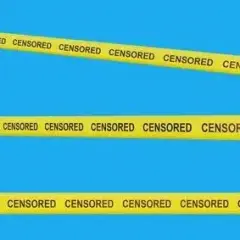
JW is writing a new violin concerto for Anne-Sophie Mutter - "Violin Concerto No. 2"
Will and one other reacted to Jurassic Shark for a topic
Did you hear it too?2 points -

What Is The Best Film Score Of 2012
Not Mr. Big and one other reacted to Jay for a topic
Lincoln is one of Johnny's best scores and one of the best scores ever written, so that2 points -
I don't know how to describe this piece in any way other than "challenging" A big reason I like film music is because of the way it tells a story through music. Classical music has always befuddled me, because I never really know what the composer is trying to say, and don't have the musical education to appreciate the writing or orchestration on its own. Throughout this piece, I constantly felt "lost", never knowing if I was near the beginning, middle or end - of the whole piece or of any individual movement. I understand people viewing online saw indications on screen when each movement began, which I imagine was immensely helpful in taking in the piece. As lost as I was in what the music was attempting to do, I still admired a lot of the music itself on an individual basis. There were parts that reminded me (briefly) of Images, Close Encounters, and occasionally other things I couldn't quite put my finger on. I enjoyed a lot of the back and forth violin and harp action, and the percussion was interesting at times too. But I think I'd have to listen to this several times before knowing what else to say beyond that. I do wonder what else Williams has been writing for a year and a half of lockdowns!2 points
-
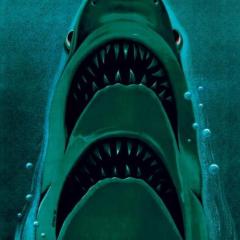
JW is writing a new violin concerto for Anne-Sophie Mutter - "Violin Concerto No. 2"
ChrisAfonso and one other reacted to crocodile for a topic
Karol2 points -
Seeing the video for the first time, it's worth noting that the harp was brought to the center of the stage, between the cellos and violas. Didn't think that would be the case from reading the programme notes, but makes sense given the harp's role.2 points
-
Listened to the piece again this morning, with the video of the concert now. Firstly, it is beyond impressive that JW, 89 years of age, took on the task of writing and conducting a piece of this magnitude, looking absolutely fabulous while doing it. Prologue is still a bit of a tough nut for me to crack, and I suspect the orchestra might have found it so as well. I get the impression of almost competing dramatic threads and climaxes, though the heart of the movement seems to be the cadenza, where Mutter is brilliant. Rounds has a bit more of a fulfilling structural and musical intent, with some really sparkling moments of orchestration. Dactyls stood out this time to me, and I think it might be my favorite movement. I think it is actually quite visual, drawing a sense of tension and drama not only from the sound of the orchestra/soloist interplay, but from the sight of the forces playing off each other. This is a movement meant to be performed. I must say, I was impressed. Epilogue has some lovely writing in it, but I still need to listen to it further I think. Overall, the concerto is very demanding, not only for soloist but for the orchestra as well. From my perspective as listener, I feel as if the work is lacking a little bit in structure, where the passages sometimes do not point to a definite direction either within movements or within the piece as a whole, instead giving the impression of a stroll through sonic moods and experimentation. I found this to be a bit of a let down compared to recent works like Markings and Highwood's Ghost which struck me as exhibiting a remarkable growth in Williams's approach to structural purpose. I could not help but compare the piece to John's first Violin Concerto as well. While the new work certainly exhibits a more advanced grasp of compositional technique, the first concerto has an emotional core that gives it a definite sense of internal musical vision, at least to my sensibilities. But, something else struck me about the new Violin Concerto No. 2, and that is that the overall structure for the piece perhaps is designed to come not entirely from inside the work, but from outside, that part of the challenge Williams baked into the work is for the soloist and, especially, the orchestra to have to find and convey their own direction and purpose as they interpret the music. If that is truly the case, then I look forward with great interest to future performances and the possible upcoming recording, where Mutter will have more familiarity with the work and JW will have more time to fully convey his vision for it.2 points
-
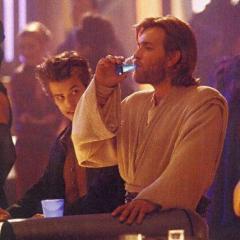
John Williams & Berliner Philharmoniker 14th/15th/16th Oct 2021
ChrisAfonso and one other reacted to E-Wan for a topic
Conditions for concert visit in Corona times https://www.berliner-philharmoniker.de/en/hygiene-rules/2 points -
Oh dang, if we’ve hit Hobbit years I choose them!2 points
-
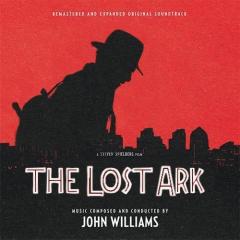
What Is The Best Film Score Of 2011
DemonStar and one other reacted to Raiders of the SoundtrArk for a topic
Tintin and War Horse are equally perfect too me Other nice scores: The First Avenger Hugo Real Steel On Stranger Tides Super 8 Rango Ghost Protocol Dark of the Moon The Artist Cars 22 points -

What Is The Best Film Score Of 2012
DemonStar and one other reacted to Raiders of the SoundtrArk for a topic
Lincoln is by far the best but those other scores are really nice too: John Carter Skyfall The Avengers The Impossible The Amazing Spider-Man The Dark Knight Rises MIB3 Jack Reacher Battleship Django Unchained (although it's just on pre-existing materials) Dark Shadows The Hobbit 1 Brave Zero Dark Thirty (although it's mainly just work in the movie)2 points -
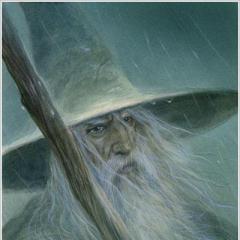
What Is The Last Score You Listened To? (older scores)
Tom Guernsey and one other reacted to Incanus for a topic
Always (Expanded) by John Williams Hard Rain (Expanded) by Christopher Young Under Suspicion by Christopher Gunning The Call of the Wild by John Powell Lionheart (Deluxe Edition) by Jerry Goldsmith Hoosiers by Jerry Goldsmith Conan the Destroyer (Tadlow re-recording) by Basil Poledouris2 points -
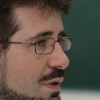
JW is writing a new violin concerto for Anne-Sophie Mutter - "Violin Concerto No. 2"
Will and one other reacted to Miguel Andrade for a topic
Really loved the Concerto. Prologue is certainly the hardest of the movements, at least to my ears. The rest just flowed so naturally... Really lovely and just amazing how it quietly ended. Across the Stars is indeed a revised version.2 points -
I liked the bit that reminded me of Images2 points
-
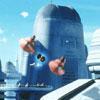
JW is writing a new violin concerto for Anne-Sophie Mutter - "Violin Concerto No. 2"
WilliamsStarShip2282 and one other reacted to Bespin for a topic
"NICE!" - Me still trying to find an affordable copy of the Duo Concertante.2 points -
My first impressions of VC#2 is similar to a few comments above. I enjoyed the start (mostly) but then really enjoyed it as it moved forward and quietly ended. JW sure loves combining instruments together in duos and trios and that was very cool to hear throughout. I cannot wait to hear the whole thing again (hopefully my recording worked as I am watching on BSO but catching the stream on my laptop). I also think ASM will also find more and more in the piece and improve it further. Also: Was across the stars somewhat updated from the album? Future release: I suspect the performance in late September to kick off the Boston Symphony season when they play this again will be the one that gets released. Perhaps they can record VC1 too to fill out the album or a few of the missing arrangements from Across the Stars (that are not on the Live in Vienna) - aren’t there 1 or 2 left?2 points
-
JW is writing a new violin concerto for Anne-Sophie Mutter - "Violin Concerto No. 2"
St0rMl0rD and one other reacted to Marian Schedenig for a topic
"One of the nine"2 points -
I will happily go see West Side Story in a movie theater and either enjoy it or not enjoy it based solely on what Spielberg actually produced. But the cultural and political perception of it I think will make it kryptonite both critically and commercially, and probably have little to do with the movie itself. I will be surprised if that movie gets a single major awards nomination.2 points
-
.thumb.jpg.75d0bef92fd5d333326cad21f3788748.jpg)
New Project: John Williams Potter Scoring
Cerebral Cortex and one other reacted to bored for a topic
Yeah, I pretty much disagree on a fundamental level. I agree that the samples could be better (they've already improved greatly in Half-Blood Prince), and some themes seem somewhat forced, but most of the time, the Order's score is a dramatic upgrade from the one we got. I'm getting very sick of this argument that this project doesn't change the tone at all from the Chris Columbus scores. This score has parts that sound that way, but it also has elements of the Prisoner of Azkaban score everywhere, and even some of the dark scoring that the post-Williams composers like Desplat and Hooper employed (see The Sacking of Trelawney where the string section of the first half is very similar in tone to Hooper's version, with some sections resembling the Desplat trio theme). If this project is just imitating a Columbus score, then so is Prisoner, just because it has medieval instruments, some of the action music is similar to the first 2 films, and Window to The Past has a similar development to the Family theme. The thematic argument you're making about Prisoner is just baffling to me. I roll my eyes when Harry goes upstairs at the Dursley's house to sit besides his family portrait, and Window to The Past plays instead of the Family theme. It so obviously would have worked there, but no this film has to have edgy, minor thematic material. It almost comes across more childish to get rid of the "happy" themes for "darker" ones without any regard for what came before. Like a child saying, "This is a new year of school, I don't have to think about what I learned last year, just learn new stuff now!" not understanding that what came before informs what you learn later. While this project, at least tries to reincorporate what came before in new creative ways. Such as in the scenes with Kreacher, where we get a demented version of Wondrous World. Not to mention the wonderful use of Wand of the Phoenix in this project, which turned an atmospheric, mysterious, but not completely noticeable theme that was only used in 2 cues from the first 2 films, and turns it into one of the most resonant, and impactful themes in the series for me. I get where you're coming from with the frequent use of piccolo and certain Williams tropes, and how repetitive it can get but for someone who isn't Williams' age, without his scoring experience, this is an extremely impressive imitation. However, I have no clue why you have an issue with this project creating original themes that Williams "didn't approve." None of us are psychic or know exactly what Williams would have done, that's not the point. This project is both a guess as to where Williams could have gone, and an attempt to make the music of the HP films a cohesive unit a-la Star Wars or LOTR, rather than the jarring, tonal whiplash we got with how it actually turned out. In this respect, I think this project accomplishes that goal almost perfectly. Umbridge's theme is memorable and suitably menacing, while still being tonally distinct from Voldemort and the Death Eaters, Luna's theme is one of my favorites, having a bit of the Hooper-like bounce while still being very Williams-esque. Order of the Phoenix I was a bit disappointed with at first, as I personally thought Desplat's was better, but it really grew on me. It might be my favorite example of how this composer is trying to make the music mature, turning from the noble, happy music of Hogwarts Forever, to the more stoic sound of The Fellowship theme or Desplat's Order theme. As for the question of only inserting themes here and there into the films' original scores... no. For one it wouldn't fit tonally as those scores are constantly different to the point of annoyance, so inserting old material suddenly would have tonal whiplash, whereas remaking the scores from the ground up to have more of a Williams feel would not only fix this problem, but fix the lack of those scores' continuity with the new themes as well. If you just inserted non HP Williams temp-tracks to make the scores feel cohesive, first those movies' tones wouldn't necessarily work in HP since it has its own unique, distinct sound. Second, then there's no new themes and that leaves the score feeling even more repetitive, dull, and lifeless, and finally, it's just lazy. At that point you're only worried about replicating Williams' tone for similar scenes with no respect to originality. Besides, I remember the assembling of Dumbledore's army scenes being purposefully similar to Williams' work on The Post as a way of maintaining Williams' style, while giving a new sound to HP. Not really sure what more you can ask of the composer of this project at this point. You're free to dislike it and have issues with it. I do as well. I agree on your critique for the end credits opening, and I would have preferred if the composer put more of his original suites in the end credits rather than relying so heavily on Williams' Prisoner themes. I just don't see how your counter-arguments make this project invalid in any way.2 points -

Tanglewood 2021 season includes several Williams concerts
Will reacted to Miguel Andrade for a topic
Williams recorded Quiet City with the Boston Pops, released on the album "Music for Stage and Screen", that includes the suite from Born on the Fourth of July and The Reivers. As for The Firebird, I've always felt that the Lullaby and Finale are a sort of musical grandparent to Close Encounter's Appearance of the Visitors and Finale.1 point -
@Doug Adams had some wonderful insights into this piece when we chatted after the concert. I won't steal his thunder but maybe he would be will to share his thoughts here1 point
-
Thank you! I will definitely give this a listen. Edit: I'm listening to it right now and I'm really enjoying it. You're right, it is a very smooth listening experience and presents the score in a really good light. Would such an edit be possible for TFA and TROS or are those scores way to hacked up, tracked, and micro-edited to ever create a smooth listening experience beyond the OSTs?1 point
-
1 point
-
Lincoln, but Life of Pi really is lovely1 point
-
I thought third was really powerful. But, yes, repeated listens will help.1 point
-
What Is The Best Film Score Of 2012
Nick1Ø66 reacted to Marian Schedenig for a topic
I don't have to, because it'll sound like I am anyway.1 point -
Evil Dead is indeed a great score. I wish more horror scores to be more like this one.1 point
-
The Book Thief by William Johns1 point
-
Filming has begun! Here's 75 photos from some beach shooting in Malibu https://www.justjared.com/2021/07/23/steven-spielberg-films-a-beach-scene-for-the-fabelmans-with-newcomer-sam-rechner/ and they'll be filming in Moorpark in August https://www.mpacorn.com/articles/spielberg-film-slated-to-be-shot-on-high-street/1 point

